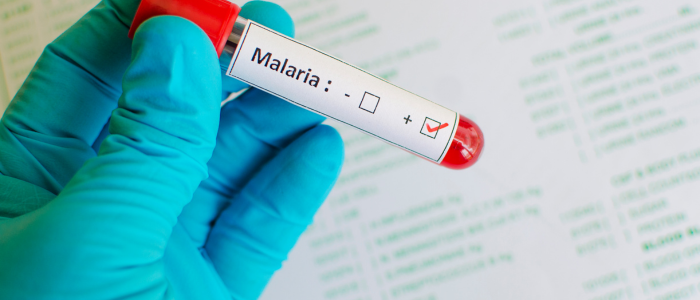News | Tropical Disease | Malaria
Nigeria launches free malaria vaccine as Egypt achieves malaria-free status
Time to read: 01:31 mins
Time to listen: 03:11 mins
Published on MedED: 21 October 2024
Type of article: News
MedED Catalogue Reference: MNG0052
Category: News
Category Cross-reference: Tropical Diseases, Vaccines
Keywords: malaria, R21 Malaria vaccine, WHO, Africa
Top
Type of article: News
MedED Catalogue Reference: MNG0052
Category: News
Category Cross-reference: Tropical Diseases, Vaccines
Keywords: malaria, R21 Malaria vaccine, WHO, Africa
Top

21 October 13:45
ABUJA/CAIRO, Oct 20 2024
In two significant developments in the fight against malaria, Nigeria has launched a new malaria vaccine, while Egypt has been certified malaria-free by the World Health Organization
In two significant developments in the fight against malaria, Nigeria has launched a new malaria vaccine, while Egypt has been certified malaria-free by the World Health Organization
On Thursday, Nigeria became one of the first countries in the world to roll out the R21 malaria vaccine, developed by Oxford University and produced by the Serum Institute of India and Novavax.
The vaccine, which Nigeria's medicines regulator provisionally approved in April 2023, will be administered free of charge. Nigeria’s Health Minister, Muhammad Ali Pate, announced that the country has received 846,200 doses of the vaccine through a partnership with Gavi, the Vaccine Alliance, and UNICEF. An additional 153,800 doses are expected by October 26, bringing the total to one million.
The initial roll-out will begin in Kebbi and Bayelsa, with a nationwide expansion planned. Nigeria, the most populous country in Africa, is the world’s hardest-hit nation, accounting for 31% of global malaria deaths, most of them children.
In contrast, Egypt has achieved a major public health milestone by being certified malaria-free by the WHO. On Sunday, the WHO announced that Egypt had proven the interruption of indigenous malaria transmission for over three consecutive years, a requirement for certification. This achievement marks the elimination of a disease that had plagued Egypt for millennia. Egypt now joins 44 other countries and one territory globally that have earned malaria-free status.
Malaria remains a major global health challenge, killing more than 600,000 people annually, most of them in Africa. While Egypt’s success highlights the possibility of elimination, Nigeria’s efforts reflect the ongoing struggle in regions where the disease remains a significant public health threat.
The contrasting developments highlight the importance of both prevention and treatment in addressing malaria’s devastating toll, with Egypt’s achievement offering hope for countries like Nigeria, where the battle is far from over.
Access the original research article
20 October 2024 | WHO | Egypt is certified malaria-free by WHO
17 October 2024 | WHO | Nigeria Receives Malaria Vaccines Ahead of Roll Out
Back to top
Disclaimer
This article is compiled from various resources researched and compiled by the contributor. It is in no way presented as an original work. Every effort has been made to correctly attribute quotes and content. Where possible all information has been independently verified. The Medical Education Network bears no responsibility for any inaccuracies which may occur from the use of third-party sources. If you have any queries regarding this article contact us
Fact-checking Policy
The Medical Education Network makes every effort to review and fact-check the articles used as source material in our summaries and original material. We have strict guidelines in relation to the publications we use as our source data, favouring peer-reviewed research wherever possible. Every effort is made to ensure that the information contained here is an accurate reflection of the original material. Should you find inaccuracies, out of date content or have any additional issues with our articles, please make use of the contact us form to notify us.


